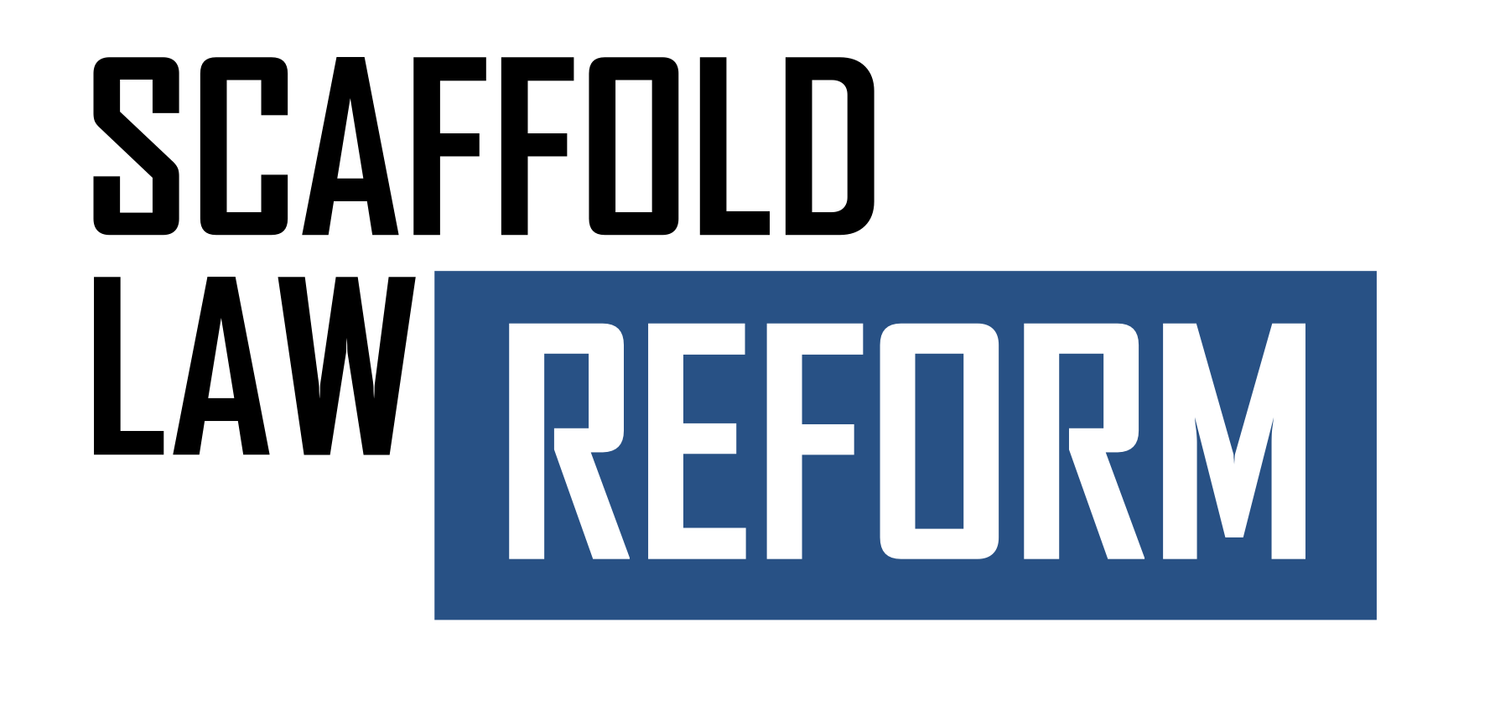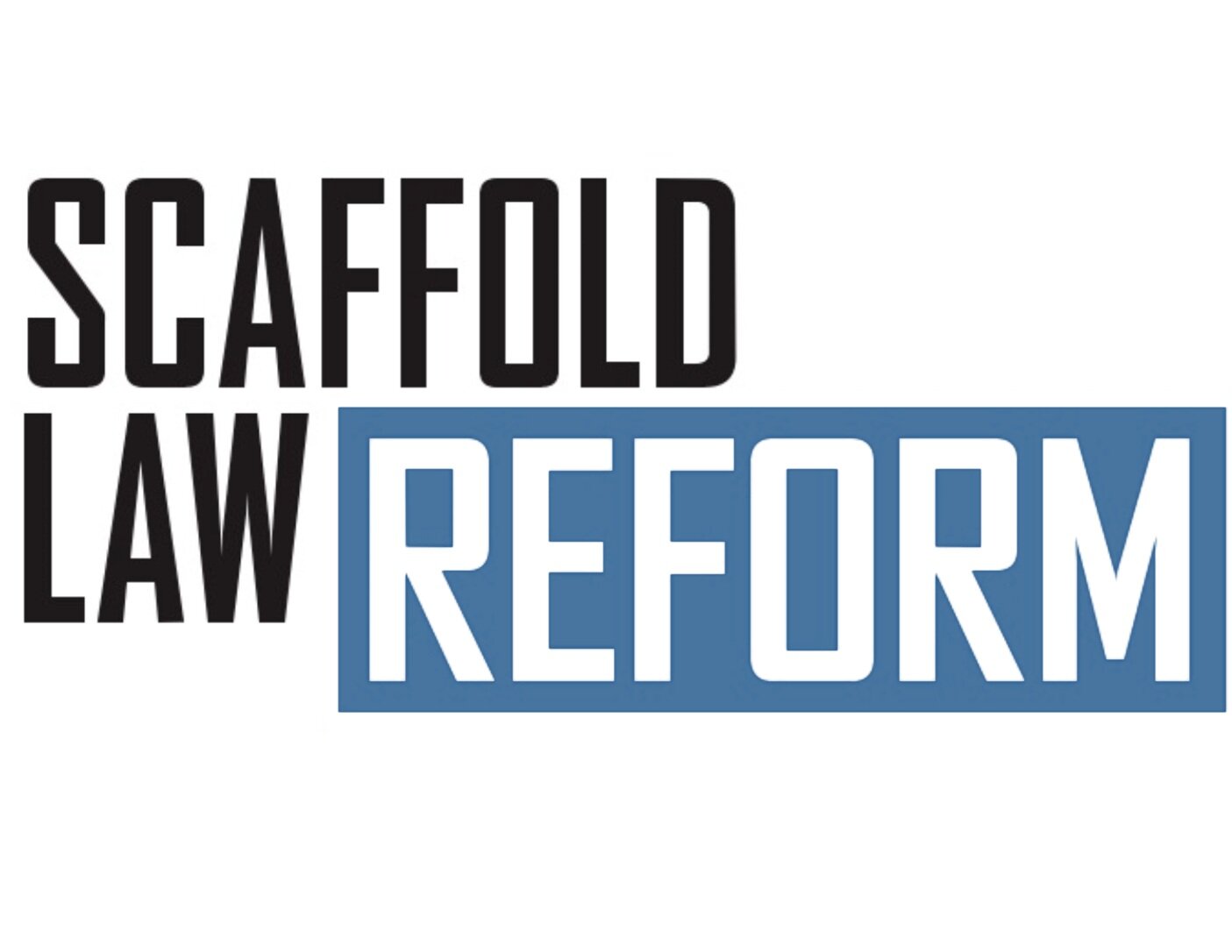Times Union: New York faces new pressure to scrap 140-year-old Scaffold Law
By: Dan Clark
A new coalition of business and civic groups in New York is backing a congressional bill that would add new pressure for the state Legislature to repeal a 140-year-old law that’s pitted construction workers against their employers for decades.
The bill would strip the possibility of federal funding from any project in New York that’s held to the state’s Scaffold Law, a statute from 1885.
It’s sponsored by U.S. Rep. Nick Langworthy, a Republican who confirmed when he introduced it this spring that his intended target was the Democrats who control both chambers of the state Legislature.
“My hope is that this law, if enacted, will finally force Albany to reform this law, saving millions each year in construction costs to build schools, residential housing, and other projects which are not typically funded by Washington,” Langworthy said.
Langworthy and other opponents of the Gilded Age-era law have argued that it’s driven up the cost of insurance on construction projects. But supporters consider it an important safeguard for worksite safety.
“Cutting costs should not come at the expense of the wellbeing of hardworking New Yorkers who are simply trying to support their families and pursue the middle class,” said Gary LaBarbera, president of the New York State Building and Construction Trades Council.
That council, a trade group that represents unionized construction workers, opposes Langworthy’s bill and would prefer to see the state’s Scaffold Law remain intact.
The law, which is split into two parts, was written to protect workers from unsafe job sites at a time when the construction of taller buildings, including skyscrapers, was starting to take off in New York City.
It holds employers financially liable, with few exceptions, when a worker is injured from a fall. That’s the required standard — called absolute liability — regardless of whether the worker is suspected to be at fault.
At its inception, the law was a way for the state Legislature to force the addition of new safety measures at worksites considered hazardous. Federal workplace safety agencies, like the Occupational Safety and Health Administration, didn’t exist at the time.
But it’s remained on the books as workplace protections in government have evolved despite efforts to amend it.
One such effort was led by former U.S. Rep. John Faso, who sponsored a bill similar to Langworthy’s proposal in 2018. It passed the U.S. Senate but not the House.
Faso, who’s now a private consultant, is behind Build More New York, the new coalition formed to support Langworthy’s bill. The effort is expected to be announced Thursday.
“I used to say it was like a straw on the camel’s back of the economy of our state,” Faso said. “It’s now like a whole bale of hay on the camel’s back of New York state.”
Several groups that hold significant power in New York politics and government have signed on to the coalition, including the Business Council of New York State, the Real Estate Board of New York, the New York Farm Bureau and the Partnership for New York City.
Their hope is to drive enough momentum for Langworthy’s bill that it doesn’t suffer the same fate as the measure brought seven years ago by Faso, who said the context of the situation could add to that influence as well.
“Two basic things have changed. For one, the situation in the insurance market has gotten more dire,” Faso said. “The second major difference is that in this coming session of Congress there’s some must-have legislation this thing could ride on.”
The surface transportation bill, a major bipartisan measure due next year that allocates federal infrastructure funding, could be an opportunity for federal lawmakers to include the provisions of Langworthy’s proposal as a cost-savings measure.
Opponents of the Scaffold Law, including Faso, have estimated that its requirement of absolute liability adds as much as 10% to the cost of insurance at job sites.
A report from Aon, a risk mitigation firm, and the insurance giant Chubb found that the company’s claims for bodily injury were 12 times higher in New York than any other state. That drives up the cost of settlements for workers.
Supporters of the law view that as evidence that it’s effectively maintaining stronger protections for workers in New York than in other states.
“We strongly oppose this bill,” said Mario Cilento, president of the New York State AFL-CIO. “It would invalidate vital safety protections for construction workers while doing nothing to lower insurance premiums.”
Cilento said insurers should be required to publicly report the amount of profit they earn and how their rates are set. That kind of transparency could give officials a better look at what goes into the cost of construction insurance in New York, he said.
“In addition, it’s beyond comprehension that the congressman is going to Washington to undermine workers in his own state,” Cilento said.
Langworthy’s bill would only immediately impact projects that receive federal funding. But because that would make those projects more expensive or impossible to finance, it could convince lawmakers to amend the state’s standard.
That change wouldn’t mean an end to the state’s Scaffold Law altogether, according to Faso. Lawmakers could instead shift to the standard of contributory negligence, he said.
That would allow an analysis of whether negligence by the worker contributed to the incident and limit any monetary settlement that’s paid out as a result.
“Construction costs will be lower and therefore there will be more construction and more construction jobs if we can reduce unnecessary waste in the building of projects throughout our state,” Faso said.
LaBarbera predicts a different result from Langworthy’s bill. He argues that it would give a free pass to companies that don’t provide proper protections for their workers, who could be stuck with steep medical bills if their claim doesn’t cover those costs.
“Perpetuating this behavior and opening the door for more accidents will only hurt workers, hinder key projects, and discourage critical job development,” LaBarbera said.

